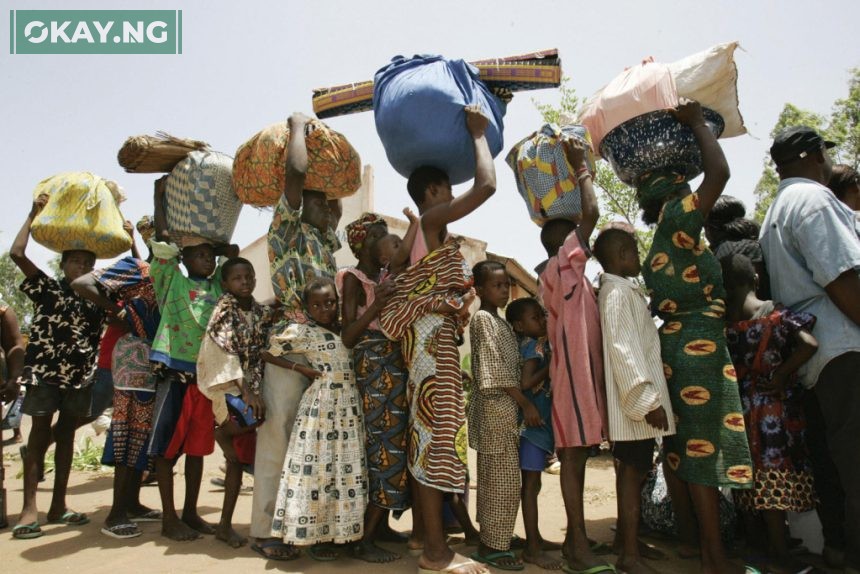The United Nations will this week launch a desperate plea for $910 million to alleviate the suffering of millions in northeastern Nigeria. This region, ravaged by a decade-long Islamist insurgency led by Boko Haram and further devastated by catastrophic flooding last year, is now teetering on the brink of a humanitarian catastrophe.
According to UN documents obtained by Reuters, a staggering 7.8 million people are in dire need of assistance within the three northeastern states of Adamawa, Borno, and Yobe. The UN has set an ambitious target of reaching 3.6 million of these individuals with vital aid, but the scale of the crisis demands a monumental effort.
This humanitarian crisis in Nigeria now holds the grim distinction of being the most expensive in West and Central Africa, surpassing even the dire situations in Chad, Mali, Burkina Faso, and Niger.
The suffering is compounded by a crippling economic crisis. Nigeria is grappling with soaring inflation, reaching a nearly three-decade high, driven primarily by skyrocketing food prices. This economic turmoil, coupled with the ongoing humanitarian crisis, has pushed millions to the precipice of starvation.
“Nigeria’s northeast risks becoming a forgotten crisis,” the UN has warned, as global attention shifts towards other pressing humanitarian emergencies such as Ukraine, Gaza, and Sudan.
Read Also: Nigeria’s Food Inflation Surges to 39.84% as Core Inflation Hits 29.28% in December 2024
A joint report issued by the Nigerian government and the UN last November painted a grim picture of the nation’s food security. It projected that over 30 million Nigerians would face severe food insecurity this year, marking one of the worst hunger crises in the country’s history.
President Bola Tinubu’s recent economic reforms, including the controversial removal of fuel subsidies and the dismantling of foreign exchange controls, have drawn criticism for exacerbating the economic woes of ordinary Nigerians. While the President maintains that these reforms are crucial for long-term economic growth, many citizens are struggling to cope with the immediate consequences, including rising fuel prices and increased costs of essential goods.
The UN’s appeal this week serves as a stark reminder of the immense human suffering unfolding in Nigeria. It underscores the urgent need for both international and domestic support to address this multifaceted crisis, which is rooted in years of conflict, compounded by natural disasters, and now exacerbated by a deepening economic crisis.









